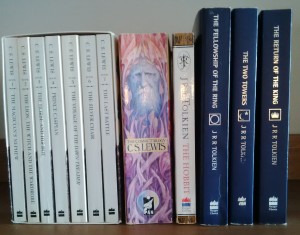“Paul generally does not urge his readers to proclaim the gospel to their neighbors, nor to go to the ends of the earth with the saving message of Christ. Rather, he urges them and commands them to live a life of holiness, to walk worthily of their calling, to demonstrate in loving and harmonious unity the new powers which have entered into the world in Christ, to demonstrate through victorious living the present victory of Christ over the powers of evil. It has been suggested that the reason why Paul does not urge his readers to a life of verbal witness is primarily because the early churches were not deficient in this respect. Though this is possible, it should be emphasized that what Paul is really doing in his letters is stressing the significance and importance of the believer’s life as mission.” – Edwin Roels, God’s Mission: The Epistle to the Ephesians in Mission Perspective (Franeker: T. Wever, 1962), 57, quoted in John Howard Yoder, Theology of Mission: A Believer’s Church Perspective, ed. Gayle Gerber Koontz and Andy Alexis-Baker (Downers Grove: IVP Academic, 2014), 103.
Monthly Archives: January 2016
New Subscription Feature
You can now subscribe to receive an e-mail update whenever a new post appears on Thinking After. Simply enter your e-mail address into the prompt in the sidebar and you will be notified whenever something new appears.
An Interesting Juxtaposition
“I’m afraid to say, but I must say it . . . I think m uch of [C.S.] Lewis’s attraction to the Protestant evangelical world lies in his individualism.”
uch of [C.S.] Lewis’s attraction to the Protestant evangelical world lies in his individualism.”
This assessment was offered by Ralph Wood, Professor of Theology and Literature at Baylor University, in a lecture delivered in Toronto in 2004 which compared the writings and sensibilities of C.S. Lewis and J.R.R. Tolkien. I had the opportunity to re-listen to the lecture this morning. Continue reading An Interesting Juxtaposition
An Unsentimental Christmas
“Sentime ntality, not atheism, is the deepest enemy of the Christian faith,” the theological ethicist Stanley Hauerwas has averred on numerous occasions. (This particular formulation is from Approaching the End (2013), 88.) Perhaps no time of year is as fraught with the danger of sentimentality for Christians as is Christmas. However, this seemingly owes more to the cultural observation of Christmas returning to its pagan roots in the winter festival of Saturnalia, then it does to the story of the Nativity. Continue reading An Unsentimental Christmas
ntality, not atheism, is the deepest enemy of the Christian faith,” the theological ethicist Stanley Hauerwas has averred on numerous occasions. (This particular formulation is from Approaching the End (2013), 88.) Perhaps no time of year is as fraught with the danger of sentimentality for Christians as is Christmas. However, this seemingly owes more to the cultural observation of Christmas returning to its pagan roots in the winter festival of Saturnalia, then it does to the story of the Nativity. Continue reading An Unsentimental Christmas
What’s Old is New Again
In September 2012, just before Apple released the iPhone 5, comedian Jimmy Kimmel took to the streets to get the opinions of passersby on the new device. The only catch was that he was not showing them the new iPhone 5, but rather the older iPhone 4s. Nevertheless, people raved about how superior the new device was to the identical device they had in their pockets or, in some cases, their other hands. I’ve used the clip in a variety of settings to illustrate the power of worldview and the enduring influence of the Myth of Progress. Continue reading What’s Old is New Again